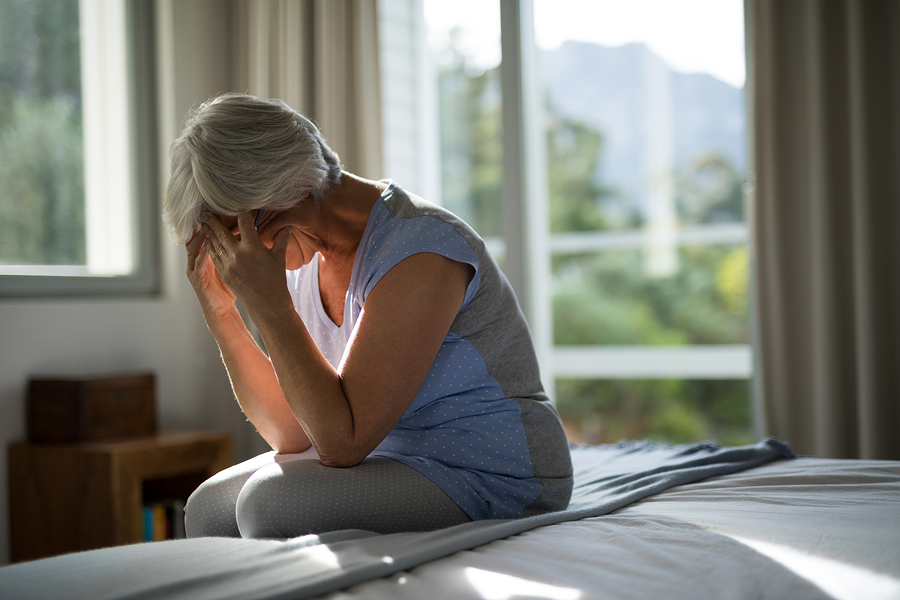Do you feel under pressure and unable to cope?
All of us can feel stressed from time to time, in fact, it is normal to do so, but if stress levels are left to build up then it can impact on our daily lives, affecting both our mental and physical health.
There are a multitude of factors that can lead to us feeling stressed with relationship issues, finances, difficulties at home or pressures at work being just a few of the most common.
Stress can alter the way we behave, think, feel and also how our body functions with symptoms manifesting themselves in many ways from having difficulty sleeping, feeling anxious, low self-esteem, changes in eating and drinking habits, feeling angry to muscle tension and headaches.
Feeling under pressure, angry and irritable and generally unable to cope are all early signs of stress, so it is important to recognise the way we are feeling and act early to reduce stress levels before its effects become unmanageable.
How can I help myself to relieve stress?
There are lots of ways to help yourself to de-stress but here are a few to try:
- Manage your time and workload – there are many techniques that you can use to help you if you feel that work pressure is contributing to the feelings you are experiencing and making a to-do list is just one of them – so go on – do a little research and brush up on your time management skills.
- Make time to exercise – along with making you fitter, exercise gives a fantastic boost to your mental health. If you’re not sure how to start then take a look at our article keen to start running.
- Take some time out – it’s important to take time to do something you enjoy for at least a few minutes every day or for longer once or twice a week – whether it is reading a good book, gardening, having lunch with a friend – anything that makes you relax will help.
- Learn how to relax – practice relaxation techniques or join a yoga class – it will really help you to de-stress and build your resilience. Read more on how to practice mindful breathing.
- It’s good to talk – simply talking things through with someone helps to put things in perspective, whether it be a friend, family member or your GP. If you are unsure about talking with someone face to face then there are online charity forums where you can communicate with others going through similar things.
Take a look at our articles in the Mind section of our site where you’ll find useful advice and information on mental health issues.
Could I be depressed?
Depression can occur as a reaction to stress. Depression, like stress, can be self-managed and there are lots of tips available to help.
If you feel you may be depressed you can do a useful test at home to assess for depression. Click on the link or find it in the NHS’s Moodzone. The test is similar to those carried out by GPs to diagnose and monitor treatment for mental health conditions.
Should I see my GP?
It is advisable to see your GP if you feel that you may be suffering from depression. Your GP can assess you physically, emotionally and mentally and can then refer you on to specialists if necessary. Your GP may also want to undertake some tests to rule out conditions such as hormone deficiencies, anaemia and thyroid function as these carry similar symptoms.
If you do need more help there are a number of effective treatment options available, including medication, counselling and cognitive behavioural therapy (CBT).
If your GP recommends that you should be seen by a counsellor or psychologist they will refer you to a suitable provider, however, as an alternative you may wish to go through the British Association for Counselling and Psychotherapy (BACP) where you will find information on types of therapy and a registered practitioner near you, but this would be a self-funded service.
Some useful links that you may also find helpful are:
NHS Moodzone – information and resources for stress, anxiety and depression
Mind – mental health charity
The Samaritans
Relate – for relationship counselling and support
British Association for Counselling and Psychotherapy (BACP)
It’s good to talk – Counselling directory
Online CBT – available without a doctors referral and free for NHS patients in many areas of the UK.
Disclaimer
All content on Silversurfers.com is provided for general information only, and should not be treated at all as a substitute for the medical advice of your own doctor or any other health care professional. Silversurfers will not be responsible or liable for any diagnosis made by a user based on the content on www.silversurfers.com and we are also not liable for the content of any external websites or links from or to Silversurfers to any other websites. Please always consult your own doctor if you’re in any way concerned about any aspect of your health
Melina - Assistant Editor
Latest posts by Melina - Assistant Editor (see all)
- By yourself at Christmas this year? Tips on how to manage alone - December 16, 2024
- The Silversurfers, just for fun, Christmas Quiz! - December 14, 2024
- 10 potential hazards for pets at Christmas - December 10, 2024
- Christmas Spiced Blueberry Panettones - December 1, 2024
- Three must have toys of the late 60’s - November 24, 2024




















